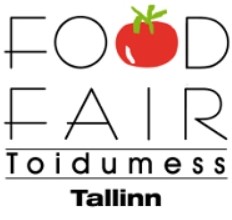Most vegetables have risen in price by 1,5 to 2 times compared to last year and have set new records for September, when, as a rule, the supply of vegetables exceeds demand on the market.
When in June prices for carrots and beets in Russia reached unprecedented levels, officials hoped for a new harvest to significantly reduce the prices. However, most of the potatoes and vegetables of the so-called “borsch set” to be stored have already been harvested, but prices are record high and continue to rise.
“Last week, carrot prices jumped by 22% at once, and the price for potatoes increased by 8%. The summer drought followed by rains when the produce had to be harvested, affected both volumes and quality of the grown produce. Market participants fear that there will not be enough high-quality potatoes and vegetables that can be stored until spring. The second factor influencing the rise in prices is the continued rains that delay the harvesting of potatoes, carrots, and beets. Accordingly, the supply is not as high as it could be at this time” explains Andriy Yarmak, economist at the Investment Centre of the Food and Agriculture Organization of the United Nations (FAO).
By the way, Belarus is experiencing similar problems, where prices for vegetables and potatoes are also breaking records, and the country has already begun to import potatoes from Ukraine and other countries.
However, market experts emphasize that bad weather is not the main factor affecting the decline in production and the rise in prices for potato and vegetables. The vegetable growing crisis in Russia has been going on since 2019 and it was caused by a long period of low prices and low profitability of production.
Potatoes are currently sold in Russia on average twice as expensive as last year.
Carrots have risen in prices slightly less than potatoes, but their prices have increased sharply last week. According to market participants, they will continue to grow. At the moment, wholesale carrots are 69% more expensive than at the same time last year.
The situation with onion prices is better – so far they are sold only 17% more expensive than last year. Moreover, they even have a slight tendency to decline. Also, onions in Russia are now cheaper than in other countries of the region. Therefore, the downward trend in onion prices may soon be replaced by growth.
Note that in the first seven months of 2021, Russia increased its imports of potatoes by 70%, carrots by 19%, but reduced onion imports by a third. The largest volumes of potatoes and onions were supplied to Russia by Egypt. Large volumes of onions were also imported from Turkey, Uzbekistan, Kazakhstan, and China. The main part of carrots Russia imported from Israel, China, Egypt, and Belarus.
east-fruit.com
 Tallinn Food Fair
Tallinn Food Fair